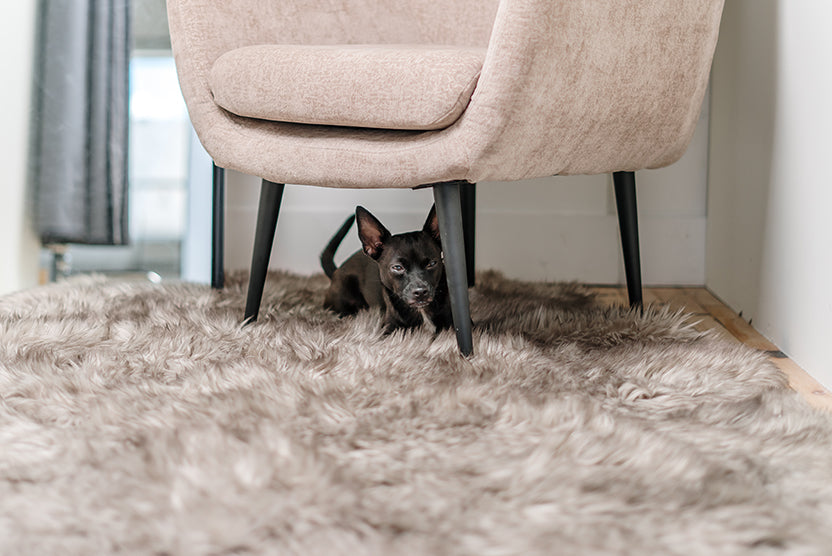Coprophagia in Dogs, Doggy Bathroom as Prevention

Coprophagia, the consumption of feces, is a perplexing behavior observed in dogs that can be both concerning and challenging for pet owners. This comprehensive guide aims to shed light on the various aspects of coprophagia, including its potential causes, preventive measures, and the role of innovative solutions like the Doggy Bathroom in managing and minimizing this behavior.
Coprophagia in Dogs: Causes and Factors
Coprophagia is not uncommon in the animal kingdom and may have evolutionary roots. Puppies often exhibit coprophagic behavior as they explore the world around them. A poor diet lacking essential nutrients can drive dogs to seek those nutrients in their feces. Additionally, addressing signs of loneliness or boredom can help reduce coprophagic tendencies. In some cases, dogs may resort to coprophagia if they have an accident and try to hide the evidence to avoid getting scolded.
Medical Conditions: Underlying health issues like malabsorption or pancreatic disorders may also contribute to coprophagia. Regular veterinary check-ups are essential to rule out potential health concerns.
Preventive Measures for Coprophagia
Dietary Adjustments: Providing a high-quality, well-balanced diet is crucial for meeting your dog's nutritional needs. Consulting with a veterinarian can help address any dietary concerns and contribute to preventing coprophagia. If your dog is not fully digesting their food, their feces may still contain traces of undigested food, which can entice them to consume their waste. Ensuring your dog's digestive system is functioning properly is key to addressing this issue.
Behavioral Training: Positive reinforcement is a valuable tool in discouraging coprophagic behavior. Using commands like "leave it" can help redirect your dog's attention and promote appropriate behavior. It's important to pick up their waste immediately after they go to prevent them from exploring it. Distracting your dog right after they do their business, by engaging them with something exciting or offering a treat, can help them forget about the feces and focus on you instead.
Regular Exercise: Ensuring dogs receive adequate physical activity helps reduce boredom and stress, minimizing the likelihood of coprophagia. Structured playtime and walks engage the dog's mind and body, contributing to overall well-being.
Behavioural Modification: The use of deterrents like bitter sprays can make faeces unappealing, serving as a tool for behavioural modification. However, consistent reinforcement of appropriate behaviour is crucial in preventing coprophagia and tends to do better. The most difficult part for parents is that you have to be alert and next to your dog all the time before they have a chance to sneak away and do the deed. If you only catch them after the fact - then it’s too late to correct them. You must correct them in the act or right before.
Incorporating Doggy Bathroom into Coprophagia Prevention
Introducing the use of a Doggy Bathroom as a designated elimination area can contribute to curb coprophagic behaviour. To get started, parents should stand in front of the Doggy Bathroom as dogs are doing their business inside and establish eye contact. This signals your dog that they are safe from predators and you have their back during this vulnerable moment. As soon as they are done, kneel down and praise them immediately (with treats, no less) in order to create a distraction to prevent them from going back for a snack. Eventually after a few weeks, your dog will start to forget all about what they just let behind and focus on the reward and of how happy they just made you.
Unfortunately, many dogs that suffer from coprophagia end up in shelters or, in dire cases, are euthanized due to the desperation surrounding this behavior. Coprophagia creates a heartbreaking rift between dogs and their owners, leading to a disconnect that can take a year or more to resolve completely. In some instances, the issue may never be entirely fixed. It’s essential to remember that all your dog wants is to make you happy, and it is up to pet owners to find ways to communicate that eating their waste is unacceptable.
Correcting this behavior requires vigilance; you must catch your dog in the act to effectively correct them. If you try to correct them after the fact, they won’t understand what they did wrong. This often necessitates 24/7 supervision until trust is reestablished in the relationship. The good news is that with patience and persistence, it is possible to manage this behavior and restore a harmonious bond with your pet.
Correcting Bad Behavior: To address coprophagia, identify the underlying cause and immediately redirect your dog's attention with a distraction. Once you successfully interrupt the behavior, use positive reinforcement to reward them. Consistency and clear communication are crucial. Use firm but calm commands like "Yes" or "No," but avoid any violent or menacing behavior. Hitting your dog or rubbing their nose in feces is counterproductive and will worsen the situation. Clear commands will strengthen the bond between you and your dog, fostering a positive and cooperative relationship.
Dental Hygiene: Regular dental care is also important. Invest in good toothbrushes and dog toothpaste to ensure your dog's teeth and mouth stay clean. While this task may be daunting, maintaining good daily dental hygiene is beneficial overall and will help your dog become more tolerant of this healthy habit.
In summary, coprophagia in dogs is a challenging behavior that requires compassion, understanding, and proactive management. By addressing potential causes, implementing preventive measures, and utilizing innovative solutions like the Doggy Bathroom, pet owners can navigate this issue effectively. A holistic approach—combining proper nutrition, behavioral training, and thoughtful solutions—can lead to a healthier and happier life for both pets and their owners.


